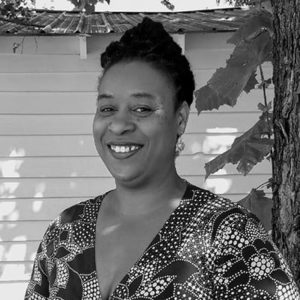Oh, how I long to visit the beach, but with the current state of pandemic, the beach is not on my summer calendar. That, however, doesn’t stop me from reflecting on a trip to the beach that I took while in graduate school a decade ago. On one trip in particular, I made some notes about a profound experience. As summer draws to an end, and as I long for the sound of the waves and the cooling water, I reflect back on that poignant evening, one spent standing in the ocean as the bold red sun dipped below the beach front properties as it escaped westward to continue its duties. I remember the onslaught of lessons. It was the realization that I live in a world where truth is right in front of me. Like the many times I have visited the beach and the ocean, the lessons were hidden because my mind’s eye could not see. This amazing world is created in such a way that every part of creation contains the blueprint for our relationships with what we call the mystery or the divine, and with each other. Because it would take an entire evening to share all the lessons I gathered into my heart that day, I will instead share with you just a few that stood out most. It is my hope that you ponder the lessons and take the opportunity to find the ocean — when it’s safe to return, or in your mind — and learn from it.
Lesson 1: It’s too cold!
Even with temperatures warmer than comfortable, the ocean feels cold as you enter into her. That feeling quickly disappears as you linger in the water. Let me give you the scenario so that you will understand this phenomenon that I experienced. It was the middle of June with temperatures hovering in the sweltering 90s. It was the middle of the day, early in the afternoon after the sun had the opportunity to rise and heat the particles of sand to a searing temperature.
Merely attempting to walk to the ocean side caused me to hobble, hop, and leap in an effort to avoid the burning sand. The air was warm and thick, and in only minutes after leaving the climate-controlled environment of my car, sweat formed and dried almost instantly. Only the shade of the pier or of a beach umbrella brought relief. The shaded sand, not contacted by the immensely powerful sun, was soothing as I thankfully unloaded the necessary gear for an afternoon on the beach. The sweltering heat was sufficient to bring the ground temperature to a dangerously high level and the air temperature to a point that felt like the interior of a baking oven. In my mind (one that already knew better) I anticipated the refreshing waves that would sweep over me and wash away the heat that was sticking to my body. I anticipated that water gently lulling me in and providing relief. And that is the picture that came to an immediate crash as I stepped with both feet into the oncoming waves. The brutal reality was of a chilling cold that caused me to stop in my tracks. It was cold.
It was shocking. I was tempted to turn and run back to the scorching sand that I was seeking relief from only seconds before. But I didn’t run. I stood firm and I continued forward. The ocean water was cold and the lapping waves shocked my body over and over again until I was submerged. It chilled me instantly, and I could no longer remember the heat, for it was washed completely away and replaced with chill. But as I plunged again and again into the salty depth, the chill was gone. The water was no longer frigid. The water was the warm welcoming water that I had anticipated from the shore. It was inviting, the waves almost singing an invitation to come and play.
Lessons to self:
- Change is often as shocking as the chill of the first dip into the ocean. But it is a chill that soon subsides if I submerge myself into the ocean of change.
- Shock often comes right before satisfaction. Keep moving forward.
- I can remain in the hot sand because of my fear of the cold, or I can push through my fears and watch my fears subside.
- It is only my fear that makes me think the shock of the cold (or change) will last more than the moment that it actually lasts in reality.
- I spent more time fearing the cold that the cold lasted. Rather than wasting time in fear, I should spend that time enjoying the ocean.
Lesson 2: It’s not too deep, yet!
The ocean gradually deepens. This is a simple and obvious truth that came to me in my time spent on the beach. The ocean gradually deepens to an unfathomable depth. Well, with modern science this is no longer true. In nautical terms a fathom is a measurement of water depth. The unit of a fathom is about 5 to 6’. To measure the depth, an instrument was lowered into the water until it touched the bottom, and the amount of line needed gave the depth measurement. If the instrument was lowered its full length and still did not reach the bottom, the depth was said to be unfathomable. Although modern technology is now able to measure the great depth of the ocean, you don’t realize the immense depth from the edge of the shore. As I walked out into the ocean it gradually became deeper in a slow steady progression.
Lesson to self:
- There are very few things that are SUDDEN! Most things in life, both good and bad, move with a slow steady gradual change, just like the depths of the ocean.
Lesson 3: Get in or get out!
Near the edge of the water there are both waves pushing you out of the ocean and waves pulling you back in. It’s as if the ocean is telling you to get in or get out. My daughter and I were standing perhaps 20’ from the dry sand adjusting to the ocean temperature. The constant motion of the waves kept me off balance. I would stand, and then the rolling water would wash in over us with enough force to push us back toward the sandy edge. Then there would be a violent return, as if the ocean were recalling the very waves sent homeward only seconds before. As I moved farther out into the ocean, after committing to be wholly in the ocean, the constant tugging and pushing no longer occurred. Once I moved past contemplation, the ocean was welcoming; it allowed me simply to be. Once committed to the ocean, the ocean never again challenged me.
Lessons to self:
- >> Either in or out! “I am” is full commitment. “I’m trying to” and “I’m working on it” are less than full commitment.
- >> There is a lot more motion in the place of no commitment. More energy is spent at the edge, neither in nor out.
Lesson 4: How far can you go?
It’s amazing how far you can walk into the ocean and still be only knee deep. As I joyfully played with my daughters in the Atlantic Ocean, I dared to venture farther out into the water. I had gone beyond where I would allow my children to follow. I kept walking farther and farther from the sandy shoes and into the ocean that gracefully rolled up to the sandy edge behind me. I had not dared look back to see how far I had gone — I only looked forward. I continued walking, more floating than walking (because I thought the depth required it) to the point where I was comfortable, and then drifted even farther into the depths of the vast ocean. When my fears prohibited me from venturing farther, I turned back. It was then that I realized just how far I had strayed from the sure footing of the beach. I saw the children and adults playing happily some 20 to 30’ from shore and realized I was at least three times farther into the ocean.
And then I stood up. I stood up in the midst of the green giant that was ebbing and flowing all around me. I stood up beyond the place where waves crashed to the shore. I stood up, and the water was gently lapping … my KNEES. I was standing in water no deeper than most bathtubs would allow. I was standing in water that would pose no threat of demise if I had simply stood up. So stand up is what I did. I stood realizing that only fear had kept me closer to the shore. I had challenged my limit, and my limit moved. I had walked beyond my space of comfort and the world had not ended. I had challenged my fear and pushed past it. In pushing past my fears, I had redefined a new limit; a new edge had been created by my willingness to keep walking. It was not my fear that moved the boundary. Fear creates boundaries, but it is not what moves them. My willingness to ignore fear and keep walking reset new boundaries, new limits. Perhaps next time I am in the ocean, I’ll venture farther than just knee deep.
Lessons to self:
- >> When things around me seem deep, stand up and realize it’s only knee deep.
- >> Fear is often just perception. It’s a lot scarier in my mind.
- >> If I look at my problems as an ocean crashing all around me, I am likely to stay close to the shore. If I challenge my fear, even ignore it, I am able to push back the boundaries that fear has placed in my life. I must push past fear.
- >> I can only see how deep the water is by walking into the ocean.
- >> If I keep my feet on the ocean floor, I will be able to gauge the depth at all times.
- >> Stay grounded.
Lesson 5: Crowds at the edge!
Most people stay on the shore, within mere feet of the water’s edge. I stood in the ocean many yards beyond where anyone was romping in the waves. With the entire expanse that the ocean has to offer, people were all clumped together at the very edge of the water. But where I stood there was peace and tranquility, the sounds of lapping water buffering me from the shrieking children. There was nothing to tell you how far you could go into the water, but most people instinctively stayed within the safe confines of the water’s edge. Why was I different? Why was I standing out there alone looking back at the edge? On that day I pushed father, far enough so that I could look back and realize I had uncovered a difference between myself and others.
Lessons to self:
- There is a lot more out there than what lies at the edge of the ocean.
- It’s OK not to be on the edge with everyone else; besides, it’s a lot less crowded.
- There is a lot of company at the edge where everyone seems to congregate, but if solitude and silence are what you seek, you must venture farther.
- It was only after I had gone out that I could look back and see where people were. Sometimes we must move farther out to gain perspective.
Lesson 6: Lots of motion at the edge!
At the edge there is much chaos; beyond the edge there is quiet tranquility. While moving from the edge to the depth, knee depth that is, I noticed that there was a different dynamic to the ocean depending on where I was standing. At the edge the ocean meets land as it rolls up onto the sandy shores. As soon as the ocean has the opportunity to greet the sandy beach, it is pulled back to its original position in an upheaval of frothy motion. The ocean pushes you out of its grasp only to, moments later, sweep you back into its green salty depths.
I had the opportunity to wander near the edge of this natural phenomenon. I found myself tempted to fight the waves as they approached, and I struggled to remain standing against their force. No sooner had I caught my balance than I was forced to change my strategy because the ocean tide attempted to pull me in as it returned out to sea.
As I moved beyond the crescendo of tides I found a quiet calm that would only be intensified, I imagine, by moving even farther out. I was no longer inclined to fight the ocean. I was not in a battle of being either pushed ashore or sucked out to sea. I was able simply to ride the ocean surface with an up and down movement as if on a seesaw with an invisible partner. The motion was unpredictable but it embodied a peace all its own. There was no water cascading over my head and no violent foam being stirred by the battle of waves exiting and returning to the ocean. Instead of fighting the ocean, I felt the compulsion to become one with it. I became just another drop in the ocean, a fluid part of the whole. Beyond the chaos of the edge, where I was a visitor, I moved to the depth and actually joined the ocean.
Lessons to self:
- When you are on the edge, fighting the ocean is a never-ending war.
- When fighting the ocean, you are in constant turmoil, which leaves very little time to enjoy all that the ocean has to offer.
- Sometimes finding peace requires moving away from the chaos that resides near everyone else.
- Time of solitude away from things that pull and push on you is a wonderful retreat, even if only for a few moments.
Even though I am putting off a trip to the ocean until life in crowds seems safer, I can remember the waves and the sand and the smell. And I can remember these lessons. I wonder what other lessons I can learn from nature if I take time to look and listen?
Condensed with permission from Lessons from Nature: The Ocean by LaRahna Hughes (Budding Tree Publishing © 2010)






